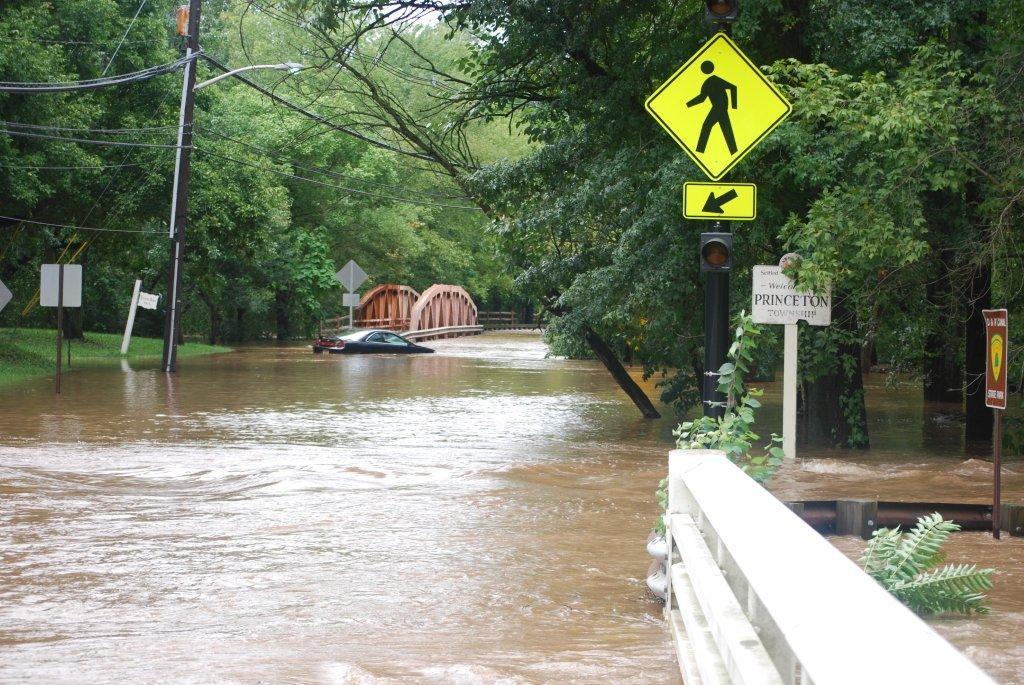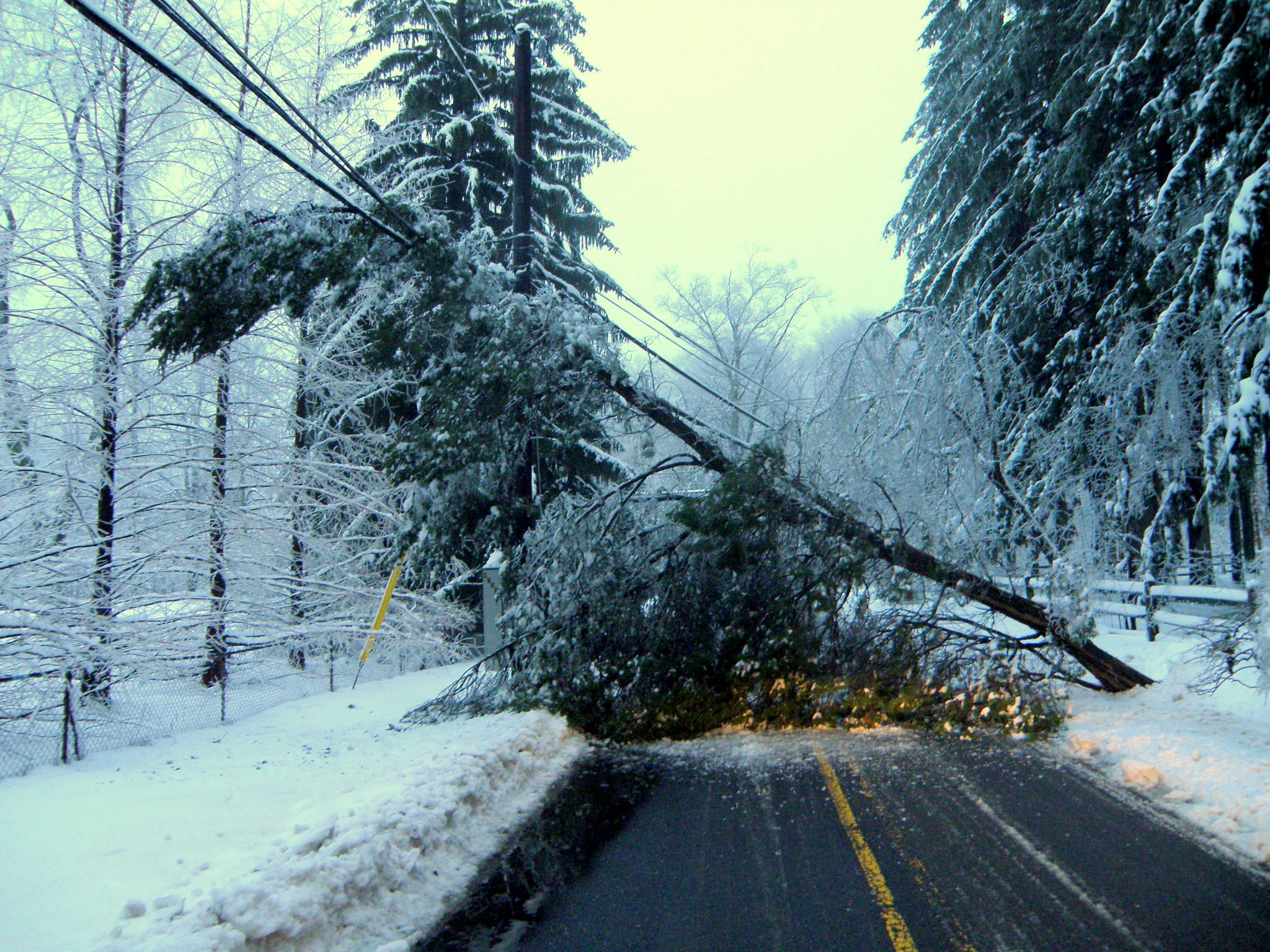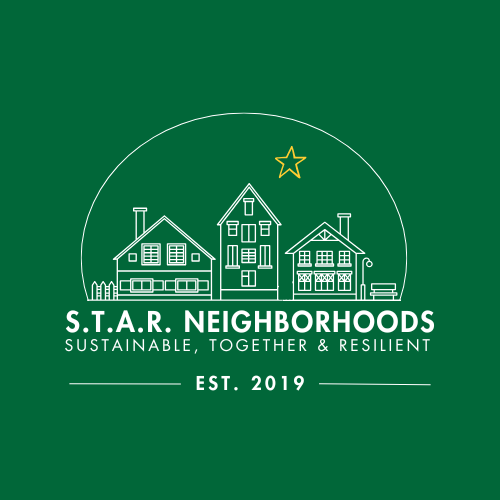Welcome to our explainer series, taking important topics and going deeper!
What is climate resiliency?
One of our core pillars at Sustainable Princeton is strengthening community resilience. Additionally, the town’s Climate Action Plan includes resiliency, with a vision of making sure all Princeton community members are prepared for the impacts of climate change. As both a global and hyper-local issue, climate change is being felt across the board. Notably, we’ve seen more intense weather events like flooding and extreme heat.
More severe storms lead to more downed trees and power lines, damage to property, safety risks, and increased costs for clean up. It’s important that we understand what to do and prepare ourselves and our communities.

Climate resilience is about adapting to, managing, and preventing the impacts of climate change. While we still must do everything we can to cut down emissions, the effects are already here. Protecting ourselves against current threats and preparing for future ones will work towards a climate-resilient society. The United Nations Framework Convention on Climate Change (UNFCCC) outlines a pathway to a climate-resilient society through resilient people, economies, and environmental systems. For people and livelihoods, this looks like warning systems, green jobs, social protection, and financing vulnerable communities. In the economic and business sector, investments should be climate-informed, and there should be emphasis on managing climate risks in cities, infrastructure, services like energy and transport, etc. Natural ecosystems and biodiversity must be protected at all costs, to ensure clean air, water, and food for all living beings.1

What climate change impacts and emergencies are most likely here?
We have seen an increase in flooding in many parts of the east coast and here in Princeton. As mentioned in our green infrastructure explainer, climate change is leading to more rain, which combined with more impervious land cover leads to more stormwater runoff and flooding.
There are threats to public health as well. Rising temperatures mean being more susceptible to heat-related illnesses, a more suitable breeding ground for ticks and mosquitoes, and higher levels of pollen and other allergens. We have a few tips on how to deal with these on our website and an in-depth explainer on dealing with ticks and mosquitoes.
What can you do to prepare?
Register and make a plan
First, make sure you are registered for alerts, so you will get critical information like severe weather updates or road closure announcements. Sign up for Nixle alerts to receive information in Princeton and surrounding towns, or opt for alerts from the Princeton Police only. Additionally, sign up for the town’s Emergency Alert Program.
Personal preparedness is important in the face of such situations, if governments or emergency responders are not immediately available. Make plans for what to do in an emergency, knowing where to go and how to get there safely and equipped with essentials, or being prepared to remain indoors. The Princeton Prepares effort “is a voluntary community initiative to help emergency responders serve residents who find it difficult to help themselves.” Although not an absolute guarantee, eligible residents are encouraged to register.
Severe weather events can hit quickly, and might last for several days. Advanced preparation can help with feelings of panic in case of flooding, fires, downed trees or power lines, etc. Knowing an evacuation route, how and where to keep in touch with friends and family, and building an emergency kit.2
Support your community
Climate change affects everyone, although some people are more vulnerable than others. At any time, but especially in times of crisis, developing supportive relationships with those around us can be particularly helpful. The STAR Neighborhood program is one way to build a more sustainable community.
Why does it matter?
As we are probably about to blow past the 1.5 degree tipping point3, the effects of climate change are not stopping, as we’ve already started to see. However, we can still adapt and prepare. Here in Princeton, there are plenty of resources to make yourself and your household prepared, connect with your community and your town to be resilient in the face of severe weather events and other climate change impacts.

Want to learn more?
We will be sharing our explainers every month. If there are topics you’d like to know more about, please email info@sustainableprinceton.org.
